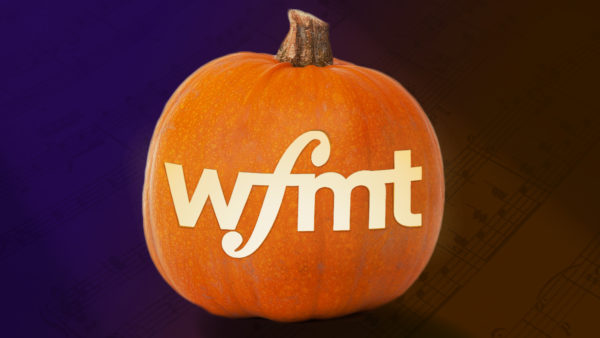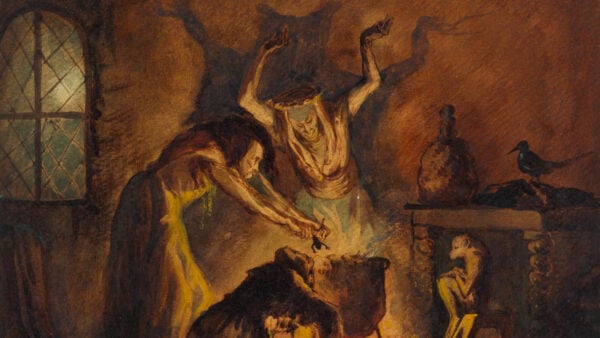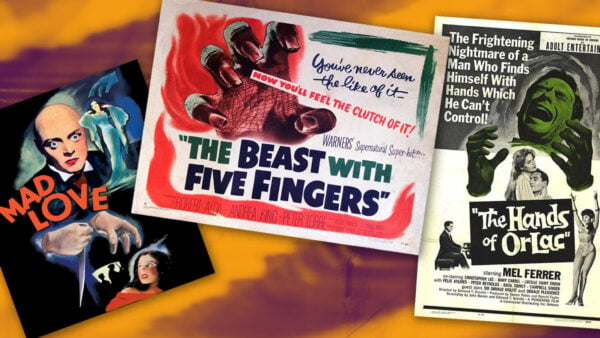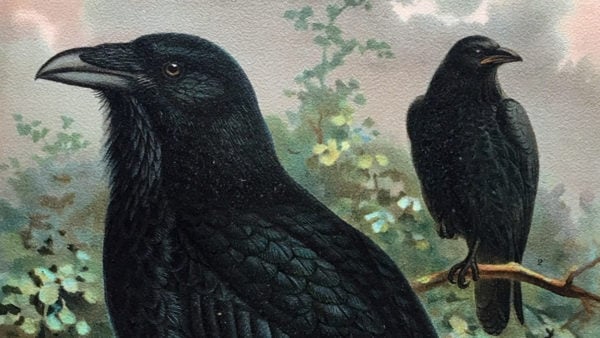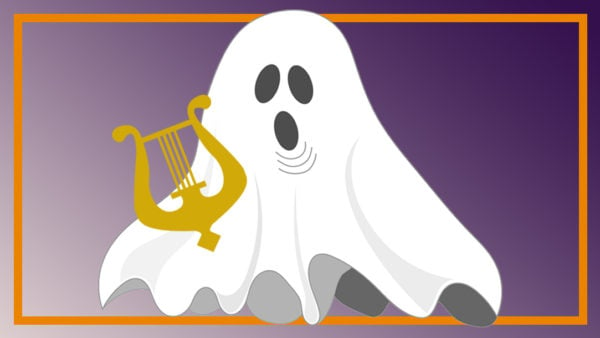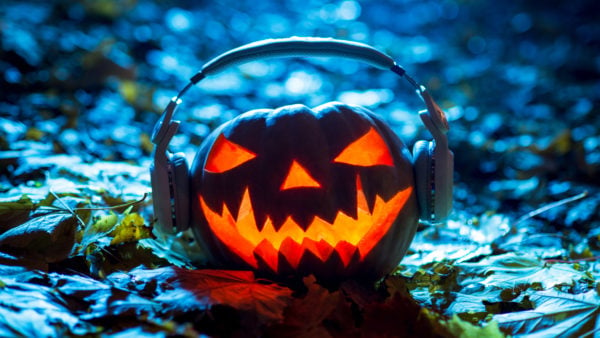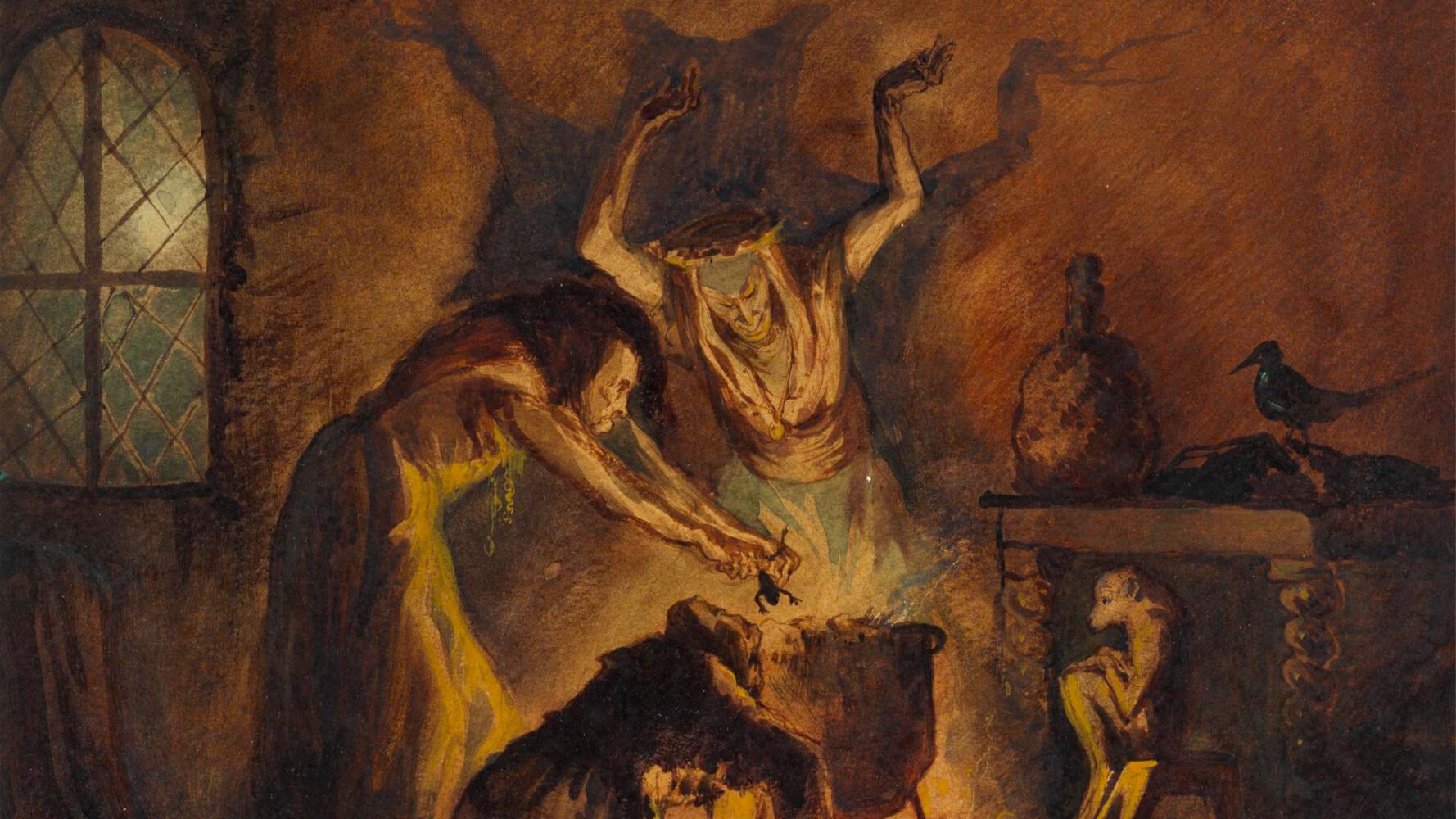
Scene of Three Witches from Shakespeare's Macbeth, 1840, by George Cattermole
The opera house can be a scary place! Many operas contain ghastly ghouls, ghosts, goblins, witches, dragons, and all kinds of chilling creatures. Here are some of the most frightening pieces from the history of opera. [Jump to playlist]
Claudio Monteverdi: Chorus of Infernal Spirits from L'Orfeo
Much of the action of Monteverdi's L'Orfeo, one of the first operas ever composed, takes place in Hades. Orfeo encounters some ghostly sights in the underworld, including this chorus of infernal spirits.
Jacques Offenbach: Orpheus in the Underworld
The story of Orpheus and Eurydice has been one of the most popular with composers over the centuries. So many composers have been inspired to set this story to music. Offenbach, however, decided to parody Gluck's Orfeo when composing his own Orpheus in the Underworld. In fact, the music we all know as the "can-can" comes from this opera. Sounds like they're having a hell of a good time in hell!
Francesco Cavalli: "Dell'antro magico" from Giasone
What would opera be with out without witches? One of opera’s most famous is Medea. Cavalli's conjuring scene in Giasone, when Medea summons infernal spirits, set the prototype for many magic and conjuring scenes for centuries to come.
Giuseppe Verdi: "Re dell'abisso affrettati" from Un ballo in maschera
We can hear that Verdi follows in the tradition set by Cavalli when Ulrica comes on stage in Un ballo in maschera. She is a fortuneteller accused of witchcraft. Can you hear some of the similarities between her aria and Medea's "Dell’antro magico" in Giasone?
Henry Purcell: The Witches' Chorus from Dido and Aeneas
Purcell, like Charpentier, cast his witch, the Sorceress, as a man. In Dido and Aneas, there's some great music for the Sorceress and her (his) chorus of witches. Because what's better than one witch? A whole coven of witches!
Giuseppe Verdi: Witches' Chorus from Macbeth
Verdi's music for the witches in Macbeth is similar, in some ways, to Purcell's Witches' Chorus. Was Verdi looking at a score for Dido and Aeneas when he composed Macbeth? Probably not. But it's easy to understand why Verdi composed this music like he did, given the centuries-long tradition of witches' choruses in opera.
Arnold Schönberg: Erwartung
In this one-act monodrama for soprano, Schönberg depicts a distressed woman looking for her lover in the dark of night. Sadly for her, when she finds him, he’s already dead. Okay, so there’s no ghost. But the music is pretty creepy!
Wolfgang Amadeus Mozart: The Commendatore's entrance from Don Giovanni
The Commendatore in Mozart's Don Giovanni is perhaps opera’s most famous ghost (thanks to the movie Amadeus). A statue of the Commendatore comes to life to claim the life of Don Giovanni, whom he drags in the fire down to the depths of hell.
Richard Wagner: The Flying Dutchman
After the Commendatore, one of the most famous ghosts of opera is title character is Wagner's The Flying Dutchman. Some terrifying music plays before any character sings a note, however. The overture depicts and exciting storm and introduces leitmotivs used later in the work.
Richard Wagner: "Welch Licht leuchtet dort ..." from Götterdämmerung
There's a lot in Wagner's Ring Cycle that would be a good for spooky, Halloween music. But, the Norns in Götterdämmerung are certainly some of the spookiest. At the beginning of the opera, the Norns weave the rope of destiny. Spoiler alert: the destiny of these characters doesn't look good. The rope breaks. Womp. womp.
Charles Gounod: Danse du Phryne from Faust
There are few works of literature that have inspired as much music as Goethe's Faust. In Gounod's opera, Méphistophélès and Faust encounter an orgiastic celebration in the Harz mountains on Walpurgis Night. You can practically see the witches dancing on the mountain when you listen to this music!
Arrigo Boito: "Son lo spirito" from Mefistofele
Written after Gounod's Faust, Boito's Mefistofele has some equally sinister music. The opera was not a success when it premiered, lasting just lasted two performances before it was pulled. Luckily today, we don't need to care about what the critics said long ago to enjoy this infernally good music.
Philip Glass: "Dance of the Witches" from The Witches of Venice
For quite a different take on the trope of the witches' dance, try taking a listen to Glass' opera The Witches of Venice.
George Frideric Handel: "Furie terribili" from Rinaldo
Armida is one of the most enchanting figures of literature, drama, music, and art. In Handel's opera Rinaldo, Armida makes a grand entrance with this short but sweet aria.
Sergei Prokofiev: "Zdes', gospodin rycar" from The Fiery Angel
Long before The Exorcist, there was Prokofiev's The Fiery Angel. Never knew there was an opera about demonic possession? It's okay to drop everything you're doing now to check it out.
Anton Rubinstein: The Demon
Angels, demons, good vs. evil. This opera has it all. It was performed one hundred times in the first decade after it premiered. While still staged regularly in Russia, it hasn't been incorporated into the standard rep. But it should be. 'Cuz demons.
Carl Maria von Weber: Wolf's Glen scene from Der Freischütz
Weber pretty much outdid himself when writing this scene in Der Freischütz. One writer described the music as "the most expressive rendering of the gruesome that is to be found in a musical score."
Benjamin Britten: "Malo" from The Turn of the Screw
There's a lot of creepy stuff happening in Britten's Turn of the Screw. Britten couldn't be content with just having ghosts in this story. One of the ghosts had to be a pedophile who comes back from the afterlife to haunt the object of his affection. There's a lot of scary music in this opera, but arguably the scariest isn't for the undead, but for Miles, the young boy who the ghost has come to haunt.
Gian Carlo Menotti: "Afraid, am I afraid?" from The Medium
Marie Powers slays as Madame Flora in Menotti's The Medium. Want your palm read? Go for it! Just maybe don't trust Madame Flora to do it.
John Corigliano: "They Are Always With Me" from The Ghost of Versailles
This Corigliano opera based upon Beaumarchais' La Mère coupable has quite a ghastly character... the ghost of Marie Antoinette!
Toshio Hosokawa: Matsukaze
Hosokawa's Matsukaze has some ghosts of a different kind: two undead sisters. The opera adapts a famous Noh drama. Noh typically uses ghost stories as the subject for dramas, and Hosokawa's Matsukaze is certainly creepy and ghostly! His score blends elements of traditional Japanese music with Western music, but with instrumentation to accommodate most Western orchestras.
Work not on Spotify or Apple Music
Follow WFMT on Spotify and Apple Music!

